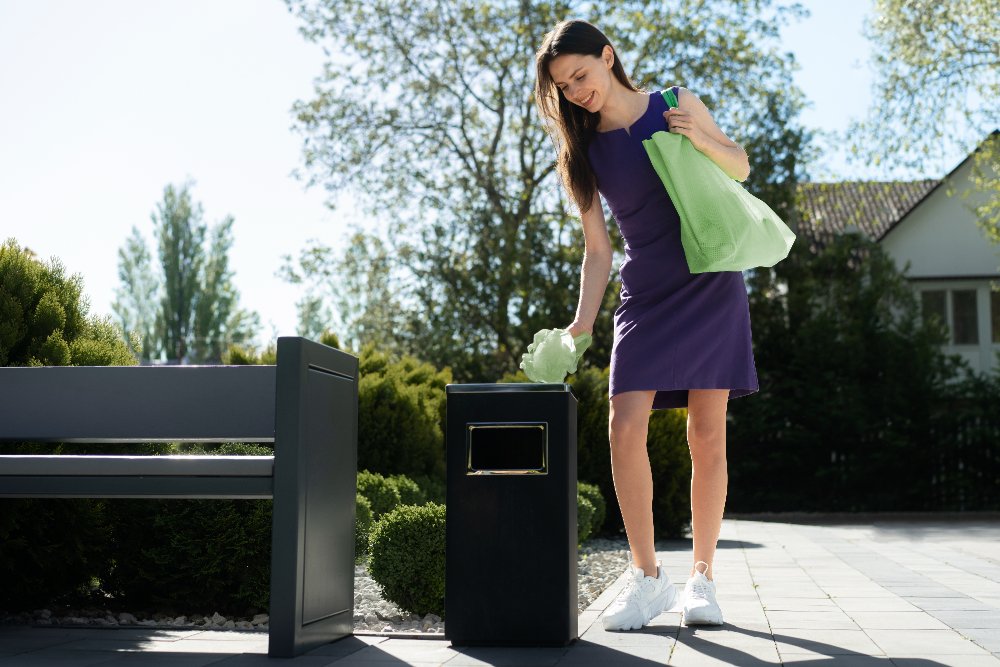As urban populations continue to grow and the pressure on waste management systems intensifies, cities are seeking innovative, sustainable solutions to address these challenges. One such breakthrough technology that is rapidly gaining traction is the use of solar compactor bins. These smart waste disposal units are revolutionizing the way cities handle garbage, blending renewable energy use with efficient waste compression to create a cleaner, greener urban environment.
The Growing Challenge of Urban Waste Management
With increasing urbanization, waste generation has surged, leading to overloaded trash bins, frequent collection schedules, and elevated costs. Traditional waste bins often fill up quickly, requiring constant emptying that strains municipal resources. Overflowing bins contribute to litter, attract pests, and degrade the aesthetic appeal of public spaces. Furthermore, the frequent deployment of garbage trucks not only increases operational expenses but also adds to pollution and traffic congestion.
In response, cities are turning to smarter, eco-friendly waste management methods that reduce environmental impact and optimize resources. This is where solar compactor bins come into focus as a game-changing innovation.
What Are Solar Compactor Bins?
Solar compactor bins are specialized waste receptacles equipped with solar panels that power an internal compaction mechanism. This compactor compresses the waste inside the bin, enabling it to hold significantly more trash than a standard bin of the same size. The solar panels harness energy from sunlight, charging batteries that operate the compaction system continuously throughout the day.
Because they rely entirely on solar energy, these bins operate off-grid and do not need external electrical connections. This feature greatly simplifies installation and lowers maintenance costs. The clean energy powering these compactors makes them a sustainable option that aligns with the goals of green cities.
Enhancing Efficiency with Waste Compaction
One of the primary advantages of solar compactor bins is their ability to increase bin capacity through compaction. By compressing the garbage, these bins can hold up to five times more waste than conventional bins before needing to be emptied. This capacity boost means collection schedules can be extended, reducing the frequency of waste pick-up.
Less frequent collection trips translate directly into cost savings for municipalities and waste management services. Fuel consumption and labor hours are minimized, which also means fewer emissions from garbage trucks, contributing to improved air quality. Moreover, by preventing bins from overflowing, solar compactor bins help maintain tidier streets and public spaces.
Sustainability and Environmental Impact
Solar compactor bins exemplify sustainability by integrating renewable energy into everyday urban infrastructure. By using solar power, these bins reduce dependence on grid electricity derived from fossil fuels, thereby cutting down greenhouse gas emissions. This renewable energy use supports cities’ commitments to reduce their carbon footprint and transition toward cleaner energy systems.
Additionally, compressed waste takes up less space in landfills or recycling facilities. This helps extend the life of existing waste processing sites and reduces the environmental impact associated with landfill expansion. The overall decrease in truck traffic also lowers noise pollution and traffic congestion in crowded urban areas.
Smart Technology Integration for Optimized Waste Collection
Modern solar compactor bins often feature built-in sensors that monitor the fill levels of the bins in real-time. These sensors communicate wirelessly with centralized waste management platforms, providing actionable data to operators. This intelligent monitoring allows collection teams to prioritize only the bins that are near capacity, optimizing routes and reducing unnecessary trips.
The synergy of solar power and smart sensor technology makes these bins a cornerstone of smart city initiatives. With enhanced operational insight, municipalities can allocate resources more effectively, reduce costs, and improve service quality. The use of data-driven waste collection is a key step toward creating efficient and sustainable urban ecosystems.
Practical Benefits in Urban and Public Spaces
Solar compactor bins are versatile and well-suited for a variety of environments, including parks, shopping districts, transport hubs, campuses, and residential neighborhoods. Their durable design and weather-resistant materials ensure long-lasting performance, even under harsh conditions.
For citizens, these bins improve the overall experience of public spaces. They minimize unpleasant sights and smells caused by overflowing trash while discouraging littering by providing ample disposal capacity. This fosters a cleaner, healthier environment that enhances community well-being and pride.
Conclusion
The adoption of solar compactor bins marks a significant advancement in sustainable waste management for cities worldwide. By harnessing the power of the sun and incorporating intelligent design, these bins tackle critical challenges related to waste overflow, collection inefficiencies, and environmental impact.
They offer increased capacity, reduced operational costs, and lowered emissions — all essential factors for creating cleaner, more livable urban environments. Through their integration of renewable energy and smart technology, solar compactor bins align perfectly with the vision of sustainable, smart cities of the future.
Investing in solar compactor bins today means embracing a cleaner, more efficient approach to waste disposal that benefits both the environment and the community. As urban centers continue to grow, these innovative bins will play an essential role in shaping greener, smarter, and healthier cities.
